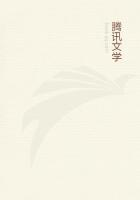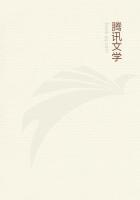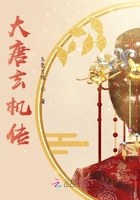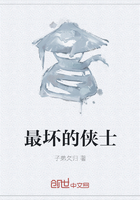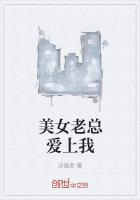"God help thee, what a lot of things thou hast strung together, one after the other, without head or tail! What have Cascajo, and the broaches and the proverbs and the airs, to do with what I say? Look here, fool and dolt (for so I may call you, when you don't understand my words, and run away from good fortune), if I had said that my daughter was to throw herself down from a tower, or go roaming the world, as the Infanta Dona Urraca wanted to do, you would be right in not giving way to my will; but if in an instant, in less than the twinkling of an eye, I put the 'Don' and 'my lady' on her back, and take her out of the stubble, and place her under a canopy, on a dais, and on a couch, with more velvet cushions than all the Almohades of Morocco ever had in their family, why won't you consent and fall in with my wishes?"
"Do you know why, husband?" replied Teresa; "because of the proverb that says 'who covers thee, discovers thee.' At the poor man people only throw a hasty glance; on the rich man they fix their eyes; and if the said rich man was once on a time poor, it is then there is the sneering and the tattle and spite of backbiters; and in the streets here they swarm as thick as bees."
"Look here, Teresa," said Sancho, "and listen to what I am now going to say to you; maybe you never heard it in all your life; and I do not give my own notions, for what I am about to say are the opinions of his reverence the preacher, who preached in this town last Lent, and who said, if I remember rightly, that all things present that our eyes behold, bring themselves before us, and remain and fix themselves on our memory much better and more forcibly than things past."
These observations which Sancho makes here are the other ones on account of which the translator says he regards this chapter as apocryphal, inasmuch as they are beyond Sancho's capacity.
"Whence it arises," he continued, "that when we see any person well dressed and ****** a figure with rich garments and retinue of servants, it seems to lead and impel us perforce to respect him, though memory may at the same moment recall to us some lowly condition in which we have seen him, but which, whether it may have been poverty or low birth, being now a thing of the past, has no existence; while the only thing that has any existence is what we see before us; and if this person whom fortune has raised from his original lowly state (these were the very words the padre used) to his present height of prosperity, be well bred, generous, courteous to all, without seeking to vie with those whose nobility is of ancient date, depend upon it, Teresa, no one will remember what he was, and everyone will respect what he is, except indeed the envious, from whom no fair fortune is safe."
"I do not understand you, husband," replied Teresa; "do as you like, and don't break my head with any more speechifying and rethoric; and if you have revolved to do what you say-"
"Resolved, you should say, woman," said Sancho, "not revolved."
"Don't set yourself to wrangle with me, husband," said Teresa; "I speak as God pleases, and don't deal in out-of-the-way phrases; and I say if you are bent upon having a government, take your son Sancho with you, and teach him from this time on how to hold a government; for sons ought to inherit and learn the trades of their fathers."
"As soon as I have the government," said Sancho, "I will send for him by post, and I will send thee money, of which I shall have no lack, for there is never any want of people to lend it to governors when they have not got it; and do thou dress him so as to hide what he is and make him look what he is to be."
"You send the money," said Teresa, "and I'll dress him up for you as fine as you please."
"Then we are agreed that our daughter is to be a countess," said Sancho.
"The day that I see her a countess," replied Teresa, "it will be the same to me as if I was burying her; but once more I say do as you please, for we women are born to this burden of being obedient to our husbands, though they be dogs;" and with this she began to weep in earnest, as if she already saw Sanchica dead and buried.
Sancho consoled her by saying that though he must make her a countess, he would put it off as long as possible. Here their conversation came to an end, and Sancho went back to see Don Quixote, and make arrangements for their departure.

